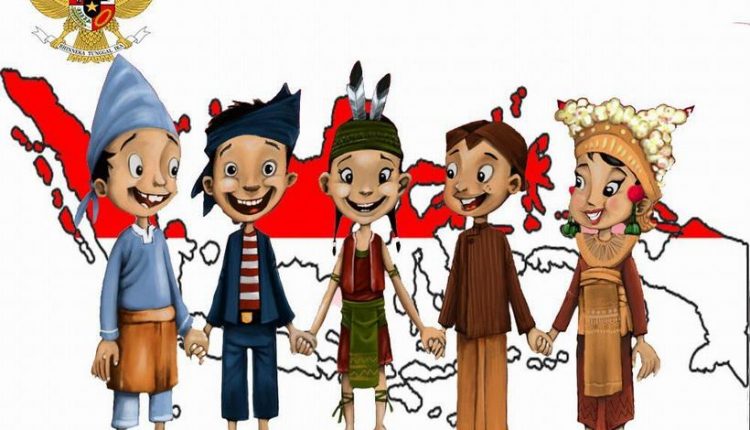Let’s Re-Cultivate the Spirit of Tolerance in Indonesia
By: Arjuna Wiwaha *
Differences are natural, with many islands, Indonesia has a diversity of tribes, cultures, languages and dialects. Traditional dances vary, but all of them are one in a motto of Unity in Diversity. In differences, there is a spirit that must continue to be fostered, namely the attitude of tolerance of society as a characteristic of the nation that is Bhineka.
Tolerance is an attitude of mutual respect and respect between groups or between individuals in society or in other spheres. Tolerance can avoid discrimination, although there are many different groups or groups in a community group.
In Indonesia there are two Islamic organizations with the most followers, namely NU and Muhammadiyah. Although the two organizations have many different views, there is one common thread that unites the two. Between NU and Muhammadiyah, they have a tolerant attitude towards other religions, are not biased and carry out Pancasila values in their lives.
As according to national culture Emha Ainun Nadjib aka Cak Nun. NU and Muhammadiyah are actually no different, because Muhammadiyah means Muhammad’s character while NU means the rise of scholars.
“So if you have joined Muhammadiyah it will automatically become NU, become a cleric. On the contrary, if you join NU, you will become Muhammadiyah, with Muhammad’s character. So let’s go together – build Indonesia together, “said Cak Nun.
The enthusiasm in the missionary movement to convey the teachings of Islam solely must not interfere with the unity and unity of the ummah, the people must remain united. NU and Muhammadiyah are religious organizations that have also become perpetrators and witnesses in the Indonesian struggle for independence, so both of them have become a forum and controller for Muslims in Indonesia in carrying out their lives.
We still remember that in 2012 when there was friction between people such as in Bogor where Ahmadis were expelled from their territory, in Wonosobo there were at least 6000 Ahmadis who lived safely and did not feel afraid of being expelled.
The Regent of Wonosobo at that time Abdul Kholiq Arif, invited all religious people to worship according to his beliefs. “The Prophet respected the Jews. I also have to behave appropriately towards non-believers, “said the former regent 2 of the period.
According to him, as citizens, minority groups pay taxes together. Therefore, he stressed that the government is responsible for providing security for all citizens when they worship, including Ahmadiyah followers.
TNI Chief of Staff (Ret.) Moeldoko appeals, so that Indonesia can be more advanced, then there should be no more thoughts that distinguish between the majority and the minority.
“Tolerance is no longer a minority and a majority. If this nation still has a feeling of majority and minority it will not progress, “said Moeldoko.
Moeldoko also said that the history of the nation’s struggle was built by various religions and ethnic groups. Therefore, from now on, remove the dichotomy between the majority and the minority. “All as agents of change to correct a broken, distorted and distorted mindset so that the thoughts that were not true then change,” he explained.
He gave an example in Javanese gamelan, all traditional musical instruments were played together in harmony. Then it can be a beautiful power, so all who must harmonize are all people. This harmony is also evident in Indonesia when the big day celebrations arrive. In Wonosobo, it is not uncommon for festivals in the temple to invite non-Confucians to participate in the lion dance performances.
In addition, the spirit of diversity also appeared lively in the Bangetayu Wetan village, Semarang City. Where the members of the village study were shoulder to shoulder to help Pastor Eka Laksa prepare a Christmas celebration at his residence, from cooking, serving dishes, to arranging chairs.
“Yes because you have to help. You are brothers even though you are not siblings. Because the neighbors finally became brothers. We even called him (Pastor Eka Laksa) never as the name, but Mr. Dhe and Mrs. Dhe, “he said.
The sight of veiled women and men dressed in the residence of Reverend Eka Laksa during the Christmas celebration is indeed normal. This has become a habit that has lasted for a dozen years. They prefer to prioritize a sense of brotherhood, rather than a matter of religion.
If we see a football team in Indonesia, then we will be able to see how enthusiastic they are using the garuda logo on their chest. They all not only come from one ethnic group, but they all come from all directions regardless of ethnicity, race and religion. The players are united by a spirit of increasing national self-esteem on the sport.
Living tolerance in Indonesia has also been highlighted by Danish Prime Minister (PM) Lars Lokke Rasmussen, who praised Indonesia for being a positive example of the most tolerant country in the World.
“I hope, and I believe that Indonesia will continue to be a positive example for the world,” Rasmussen said.
Prime Minister Rasmussen hopes that President Jokowi can continue to encourage tolerant life in a global society. Because, according to him, at this time the international world requires the prevention of religious conflict and mutual respect among fellow humans.
*The author is a student at the University of Indonesia
